A seaweed bioreactor, a waste to energy plant that is now a ski slope, a forest of turbines. Photographs as messages of hope.
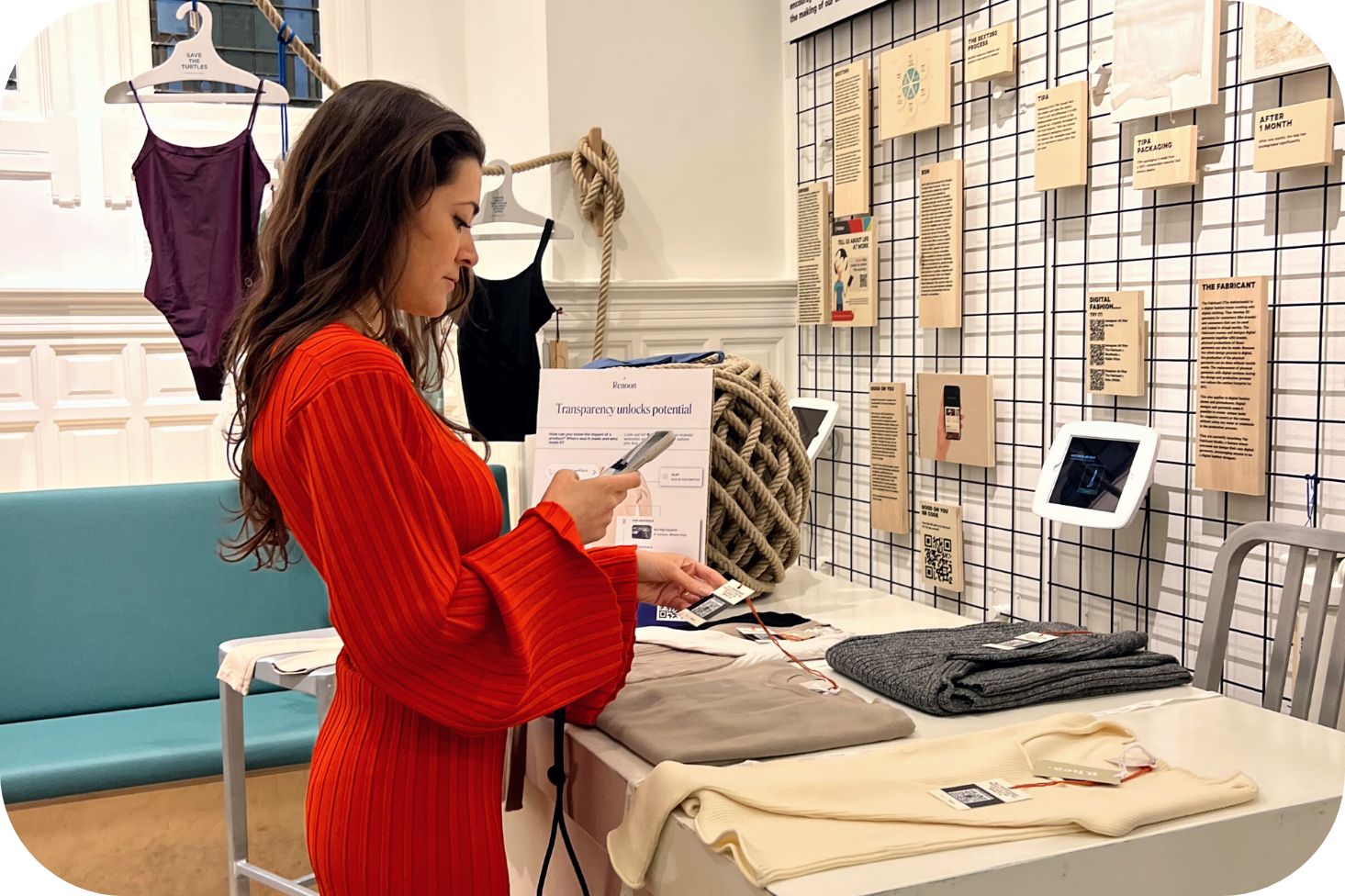
It is this deep conviction that pushes us every day to work to connect companies' acts of sustainability with consumers' purchasing choices.
If you are looking for a sustainable garment for your responsible wardrobe, you will quickly realise - as happened to me long ago - that it is very difficult to find exhaustive information, or often even sufficient information, on labels.
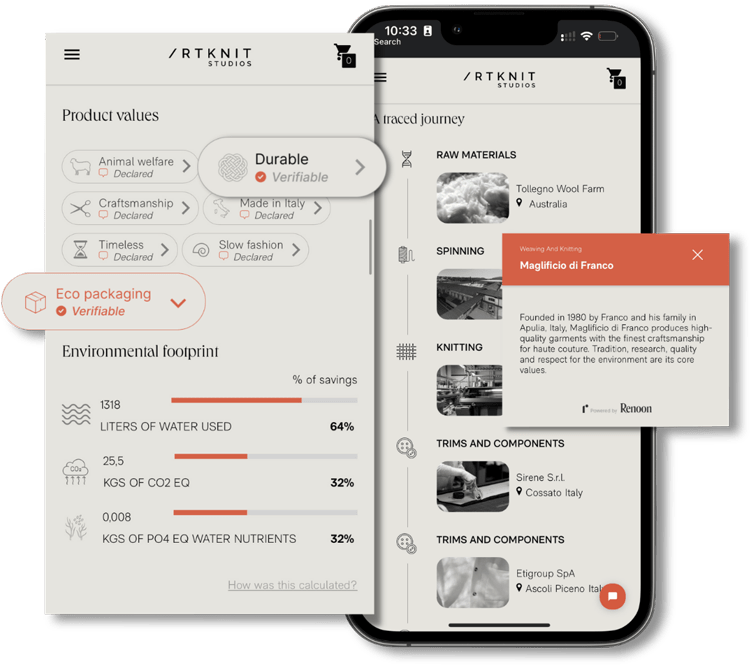
From the composition of the fabric, to its origin, to who worked on it and the journey it made to arrive in your hands: not on the label, but almost certainly not inside the shop or on the brand or producer's website, either.
This does not necessarily mean that the producer does not follow sustainable principles, or that they have not implemented an ESG policy; it simply means that these principles and practices rarely reach the consumer in a suitable or - I would say - constructive way.
This is why we created Renoon. The name of the start-up is a neologism formed from the fusion of two key concepts that represent the project's goal: the English Re-, like in reuse, reduce, recycle; and noon - midday - the brightest moment of the day.
Because we would like to bring light and transparency to the world of industrial products, starting with the fashion sector, to promote the concept of sustainable fashion. It is only by providing the right information that we can offer consumers the possibility to choose and orient their purchases.
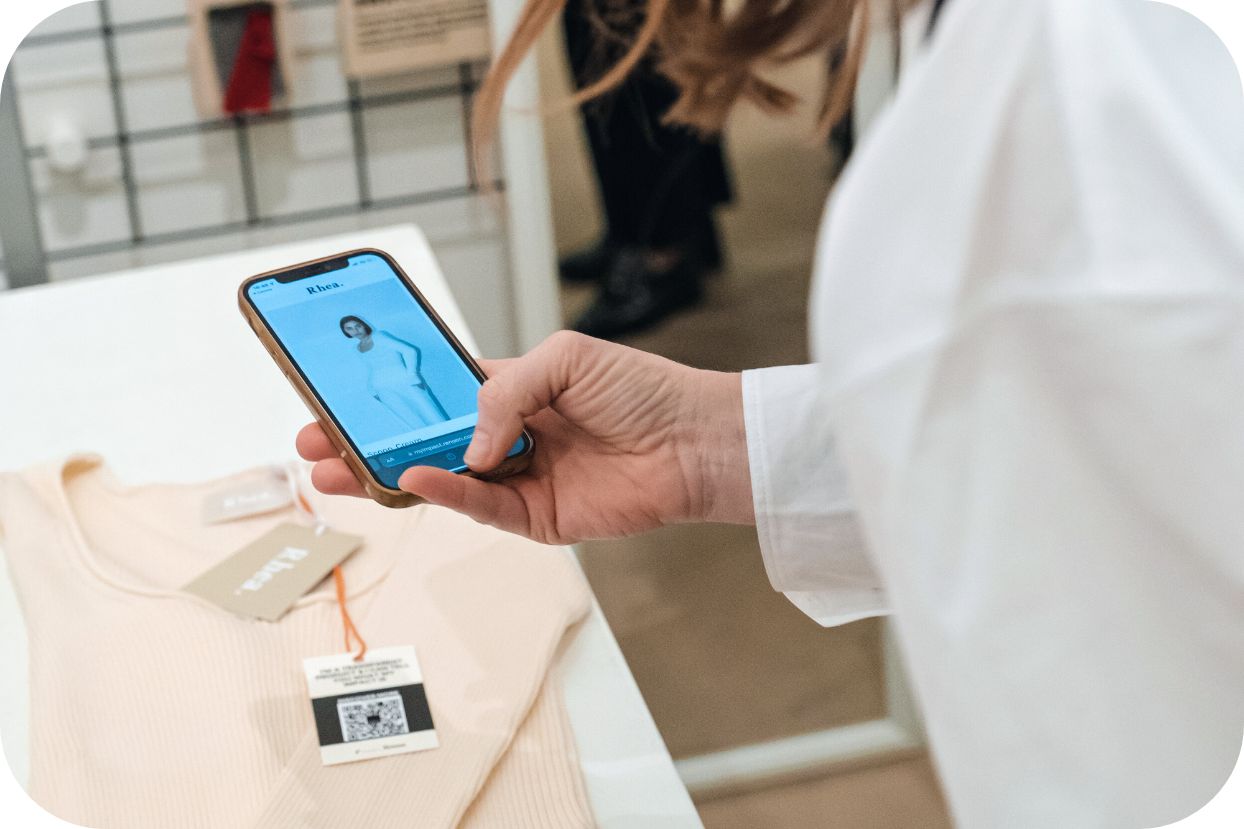
We are convinced that change needs to be led by the evolution of regulations and provisions, supported by process guidelines and technological innovation, but it can also be guided by a more subtle movement, which is gently brought about: advice that is not binding, but offered as an option.
Advice that will reach consumers, and all citizens, only if they are adequately informed, and put in the position to be able to choose, tools in hand, and opt consciously for responsible products and services.
Today, using proprietary software, Renoon works to help textile and clothing companies to measure and communicate the environmental and social sustainability of their garments to the final consumer, precisely and comprehensively, avoiding greenwashing and in compliance with new European regulations and those in individual Member States.
This communication is carried out with digital passport integration, both online through transparency labels for product pages, and offline, for example through QR Codes.
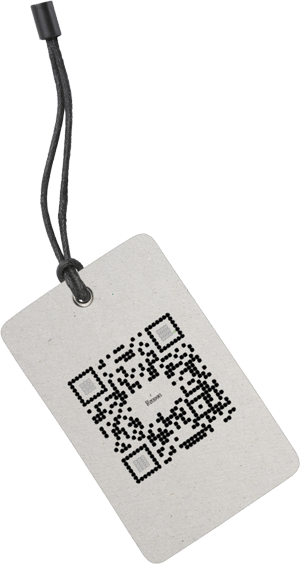
The idea has already won the support of numerous international Business Angels - informal investors who offer help to promising start-ups, both financially and through technical assistance and strategic guidance - and also a few investment funds.
We officially launched Renoon in November 2022, and it was immediately adopted by the Danish brand Copenhagen Cartel, which makes bathing suits and sportswear using recycled materials, including plastic collected from the sea; Artknit Studios, a Milan knitwear brand that uses 100% natural fibres; and other brands from London to Berlin. Since then, we have begun a fast expansion that is leading us to launch the service with American and Australian companies.
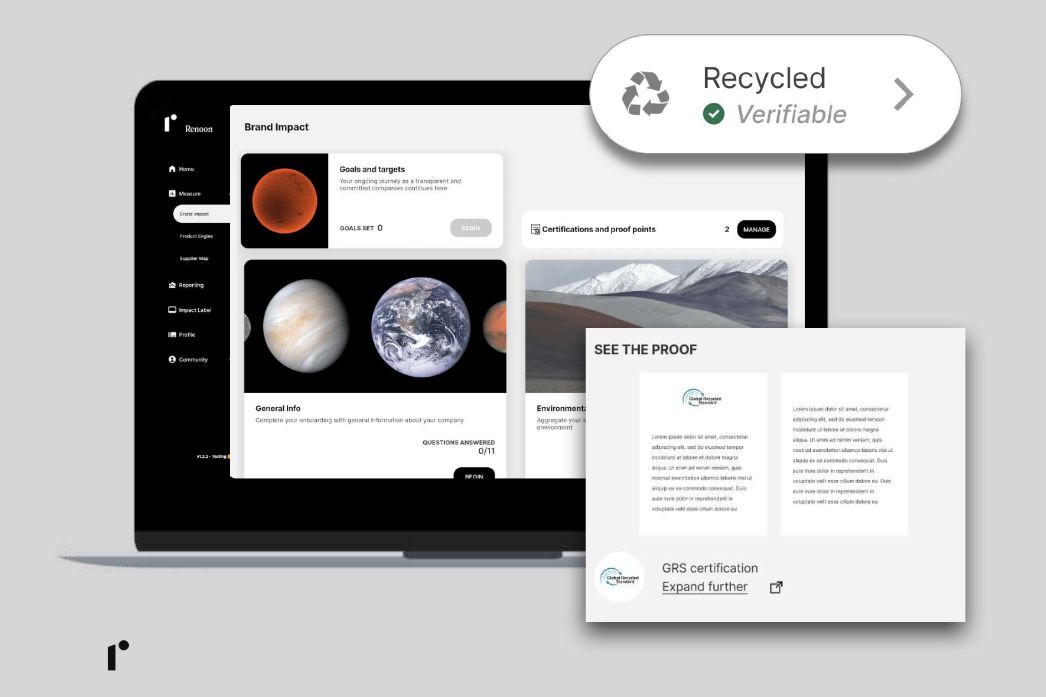
We welcome this wide participation with renewed faith in the industrial world.
It means that there are many companies that are working towards an ecological transition and are searching for partners and support to be able to involve all their stakeholders, making information and processes as widespread and circular as possible.
The European regulations on ESG criteria are being continuously updated and adapted, as this is an area that is still relatively new, and not yet mature: today, over 16 different regulations are in force at a European level, which in the next few years will require textile and clothing companies to adapt to transparency and sustainability standards, with the introduction of a digital passport and anti-greenwashing mechanisms.
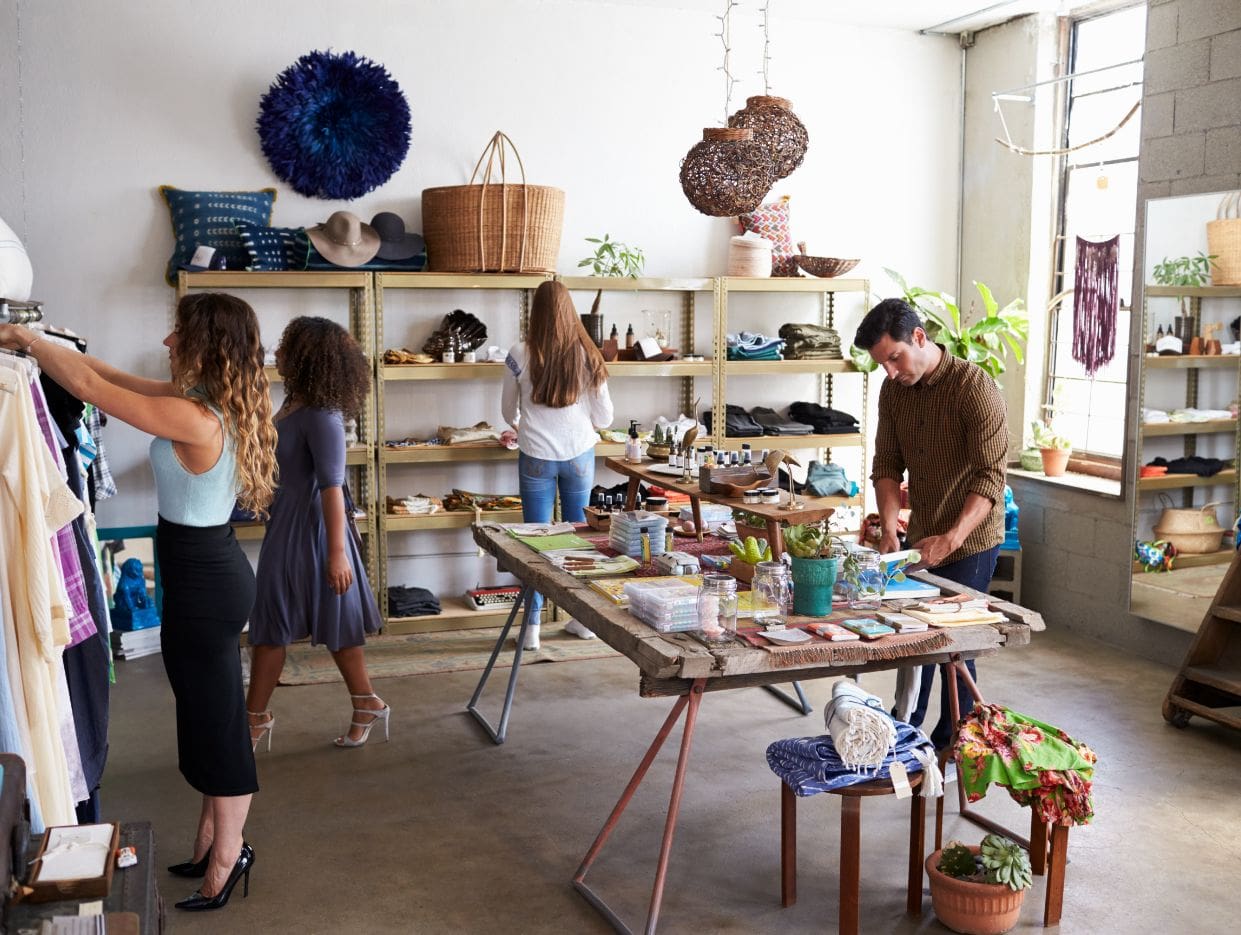
In this period, we have been working with many French companies, for example, to help them keep in line with the new Anti-waste Law for the AGEC circular economy, "Anti-gaspillage pour une économie circulaire”, which introduces the principle of "those who pollute pay", and requires a better system for consumer information.
Indeed, according to Google, over 74% of Italians would like more information on the sustainability credentials of companies (survey from September 2022).
All of the information uses Renoon's proprietary value system, which is based on a framework that takes the fundamental aspects of standards from the United Nations and other bodies and institutions, implemented with our proprietary data and expertise. Thanks to a large digital survey, we have managed to understand the most important information that consumers are looking for and are willing to process, and we have organised it to guarantee maximum clarity and usability.
In addition to the fundamental information, there is information that comes out of our interaction with our client companies, who, depending on the product and the specific launch, value and pursue different aspects of sustainability.
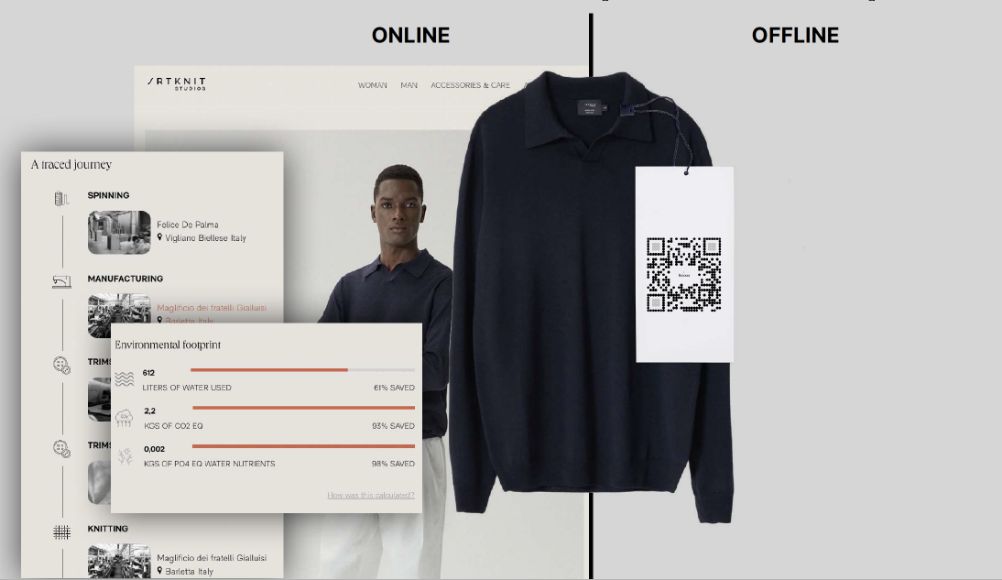
Recently, we presented a solution for a combined multi-brand platform at the e-P Pitti Immagine Summit, with tech giant Sopra Steria Italia, and other digital solutions in collaboration with businesses such as The ID Factory, E.ON and Carbonsink.
We place a lot of focus on projects for the integration and interoperability of data with the companies we work with: this allows us to simplify the flow of information more and more, creating uniformity and standard data management frameworks that are more manageable and easier to implement, and therefore easier to interpret.
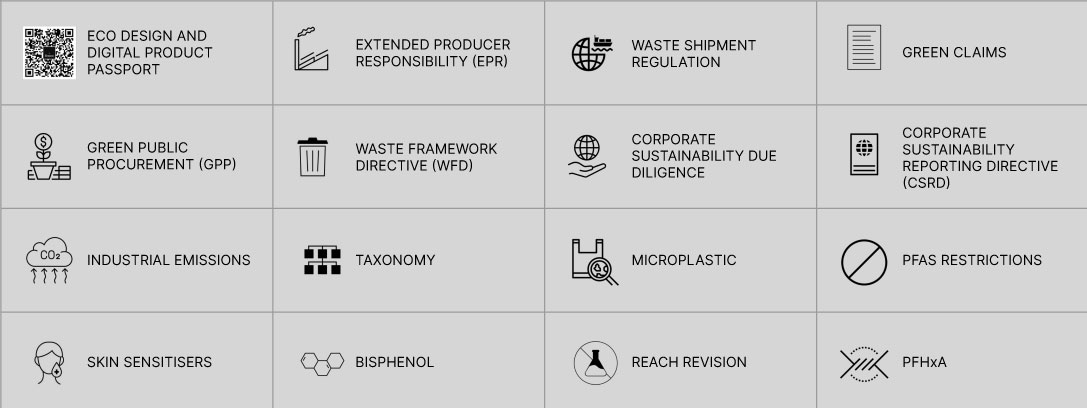
Our enthusiasm is growing with the number of brands that are choosing us to launch their labels, and we are already working for 2024: new transparency, more connection between producers and consumers, and more collaboration between industry and private citizens, to activate an ecological transition in which everyone has a role to play.
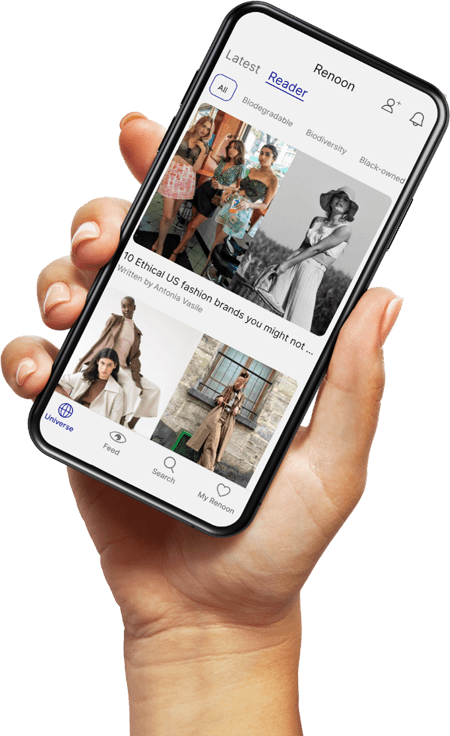
A seaweed bioreactor, a waste to energy plant that is now a ski slope, a forest of turbines. Photographs as messages of hope.
From the electric impulses of plants to the stage at Sanremo: with Dardust, music becomes a brand new relationship between man and nature.
